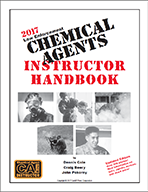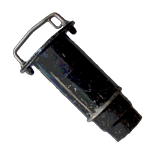Every profession has a set of ethical standards that it’s members, are expected to follow, and law enforcement is no exception. The Law Enforcement Code of Ethics formulated by the International Association of Chiefs of Police is a general, ethical guide for law enforcement officers.
However, SWAT Commanders and Team Leaders often face dilemmas that are not covered by that particular code of ethics. Rather than facing street-level policing situations, they are much more likely to face high risk actions and a host of other situations. The use of non-lethal chemical agents is becoming more and more contentious than just a few years ago. When you decide to use non-lethal chemical agents you are met with more scrutiny from inside and outside the department. Also, SWAT leaders often face competition for limited funding, community accountability, and perceived or actual political pressures.
Although there may not be a specific Law Enforcement SWAT Code of Ethics, (see NTOA SWAT Standards) asking yourself a few simple questions can help you make correct and ethical decisions throughout your tactical career. So, when faced with making those decisions in that "gray" ethical area, along with your guiding principles, here are a few questions to ask yourself.
Is my decision legal?
Although you are sworn to uphold the law, today's management decisions may fall under a set of laws you didn't learn in the academy. Your decisions must conform to constitutional law and the civil and criminal civil rights laws. A SWAT operator must not only know the provisions of the actual laws, but also have a working knowledge of the associated case law to avoid making decisions that may not pass legal scrutiny. Chemical agent use case law is quickly morphing from a low level of force to a higher level of force.
Is my decision based on emotion rather than facts?
Emotional decisions are seldom-good decisions. The negative emotions of anger, revenge, jealousy, lust or greed must not be allowed to adversely influence the actual facts and circumstances of a dilemma. Other emotional considerations such as compassionate understanding or empathy can be given weight in the decision-making process to mitigate the circumstances or motives, but good ethical decisions should be based on the facts.
Is it worth my job and/or my career?
SWAT leaders and managers can be faced with some very difficult ethical decisions. In some cases, extreme outside pressures can be brought to bear from civilian bosses, special interest groups and politicians, all seeking a favorable decision for their own purposes. Many have no experience with non-lethal chemical agents and rely on what they see in the newspapers.
At times such as those, a SWAT leader must evaluate the potential consequences of his or her decision, both pro and con. One single decision can have long-term influence and consequences. The question each individual leader must ask himself or herself is, “How far am I willing to go to maintain both my ethics and my job?” Only you know the answer to that question.
Is my decision fair to all?
After gathering the facts and circumstances of a given situation take the time to look at the situation in terms of the people involved in it. If you choose to use non-lethal chemical agents, is your action fair to the everyone? On the other hand, would your failure to use non-lethal chemical agents result in more or less injury to other participants in your actions
SWAT supervision, like law enforcement work, is still a person-to-person business and it will remain so. Taking the time to evaluate the situation in human terms can help you make better ethical decisions. With fundamental fairness as the cornerstone of your decision-making process, you can better evaluate the totality of the situation and make that sound and ethical decision.
Is it the right thing to do?
So many factors go into making the "right" decision that you cannot consciously evaluate each individual factor and its effects on your decision making process. This is the time to take a deep breath and let your intuition take over for a moment. Do you have an uneasy feeling about making a particular decision? Then there is something wrong with it. On the other hand, if a particular decision intuitively "feels good," then it is probably the right decision to make.

As you progress in your career, you often will be faced with ethical dilemmas both small and large. How you respond to those challenges will determine who you are and how others, both inside and outside the department perceive you and your department. It is your choice as to whether you are perceived as a competent and ethical SWAT leader or as something else.
In your daily activities, as well as in those difficult dilemmas, rely on your years of tactical training and experience. In difficult situations, stop and ask yourself the five preceding questions. Then make your decision. Chances are, you'll be doing the right thing.
This article was adapted from an article in Law Enforcement Technology. April 1999 by Roger Fulton, a retired New York State Law Enforcement Captain, is now the owner of Knight Management Corp., which provides management and training services to the law enforcement community.





